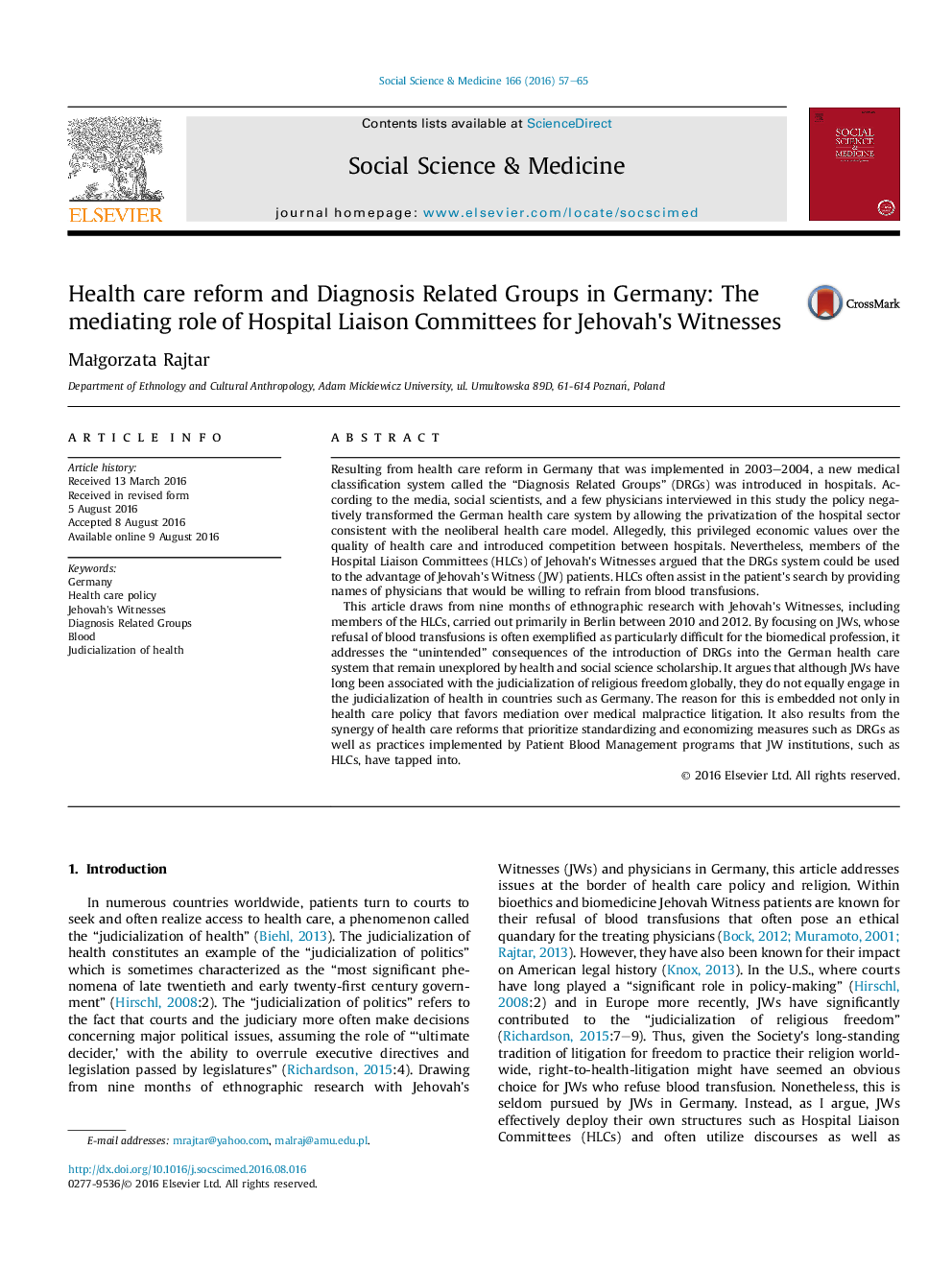| Article ID | Journal | Published Year | Pages | File Type |
|---|---|---|---|---|
| 7329188 | Social Science & Medicine | 2016 | 9 Pages |
Abstract
This article draws from nine months of ethnographic research with Jehovah's Witnesses, including members of the HLCs, carried out primarily in Berlin between 2010 and 2012. By focusing on JWs, whose refusal of blood transfusions is often exemplified as particularly difficult for the biomedical profession, it addresses the “unintended” consequences of the introduction of DRGs into the German health care system that remain unexplored by health and social science scholarship. It argues that although JWs have long been associated with the judicialization of religious freedom globally, they do not equally engage in the judicialization of health in countries such as Germany. The reason for this is embedded not only in health care policy that favors mediation over medical malpractice litigation. It also results from the synergy of health care reforms that prioritize standardizing and economizing measures such as DRGs as well as practices implemented by Patient Blood Management programs that JW institutions, such as HLCs, have tapped into.
Related Topics
Health Sciences
Medicine and Dentistry
Public Health and Health Policy
Authors
MaÅgorzata Rajtar,
